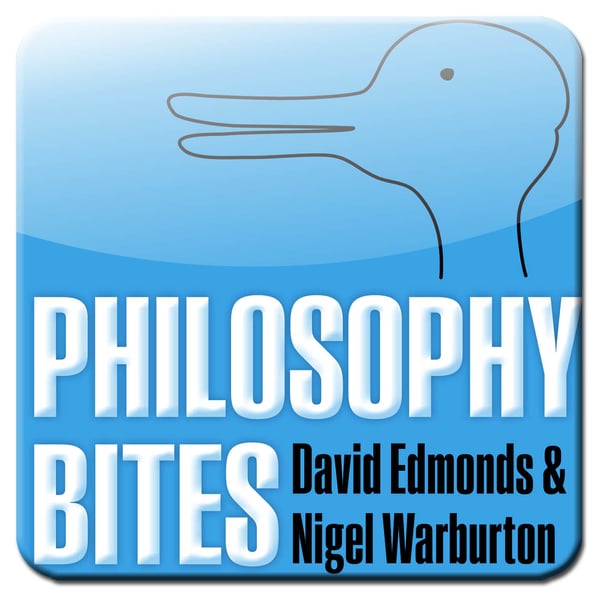Paul Russell on David Hume's Treatise
Philosophy Bites
Nigel Warburton
4.6 • 2K Ratings
🗓️ 25 April 2011
⏱️ 13 minutes
🧾️ Download transcript
Summary
The standard reading of David Hume's Treatise is that it reveals him as a sceptic and also as an advocate of a science of man. These two aspects seem to be in tension. The sceptical Hume seems opposed to the more positive contribution he makes about human nature. In this episode of the Philosophy Bites podcast Paul Russell suggests a way of solving this riddle. Philosophy Bites is made in association with the Institute of Philosophy.
Transcript
Click on a timestamp to play from that location
| 0:00.0 | This is made in philosophy bites with me David Edmonds and me Nigel Warburton. |
| 0:06.0 | Philosophy bites is available at www. Philosophy bites. |
| 0:11.0 | Philosophy bites is made in association with the Institute of Philosophy. |
| 0:15.0 | David Hume was only 26 years old when he completed what many now consider his masterpiece, |
| 0:21.0 | a treaties of human nature. |
| 0:23.3 | When it was published in 1738, it was less well regarded. |
| 0:26.9 | Hume grumbled that it, quote, fell dead-born from the press. |
| 0:30.5 | But even if today its significance is beyond dispute, there's a riddle at the heart of the book. |
| 0:35.0 | Was it essentially a skeptical project undermining our common sense beliefs on subjects like cause and effect? |
| 0:41.0 | Or did it have a more positive aim? |
| 0:44.1 | Was it a kind of science of the mind, one that anchored our feelings and emotions above reason? |
| 0:49.8 | Hume scholar Paul Russell believes he can resolve the Hume riddle. |
| 0:53.4 | Paul Russell, welcome to Philosophy Bites. |
| 0:55.4 | Nice to be here. |
| 0:57.4 | We're going to talk about David Hume's treaties, his first book. |
| 1:01.2 | How is that usually interpreted? |
| 1:03.0 | Well, the treatise has standardly been interpreted in really one of two ways. |
| 1:08.0 | The sort of classical interpretation that's dominated over a period of two centuries is that Hume is a skeptic and that really |
| 1:15.0 | what he's trying to do is undermine our confidence that we have any rational justification |
| 1:21.0 | for our most common sense basic beliefs about the existence of the world, the nature of the self, causal powers, moral distinctions. |
| 1:30.0 | So on that reading of him, he really is a fundamentally a skeptic whose program or agenda is sort of a negative destructive way of trying to undermine our rational confidence in knowledge and understanding of the world. |
| 1:44.3 | But early in the 20th century there's a hugely important work by an important Hume scholar |
... |
Please login to see the full transcript.
Disclaimer: The podcast and artwork embedded on this page are from Nigel Warburton, and are the property of its owner and not affiliated with or endorsed by Tapesearch.
Generated transcripts are the property of Nigel Warburton and are distributed freely under the Fair Use doctrine. Transcripts generated by Tapesearch are not guaranteed to be accurate.
Copyright © Tapesearch 2025.

